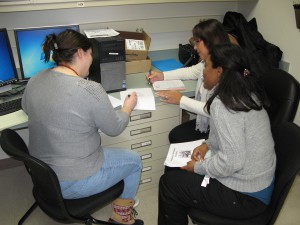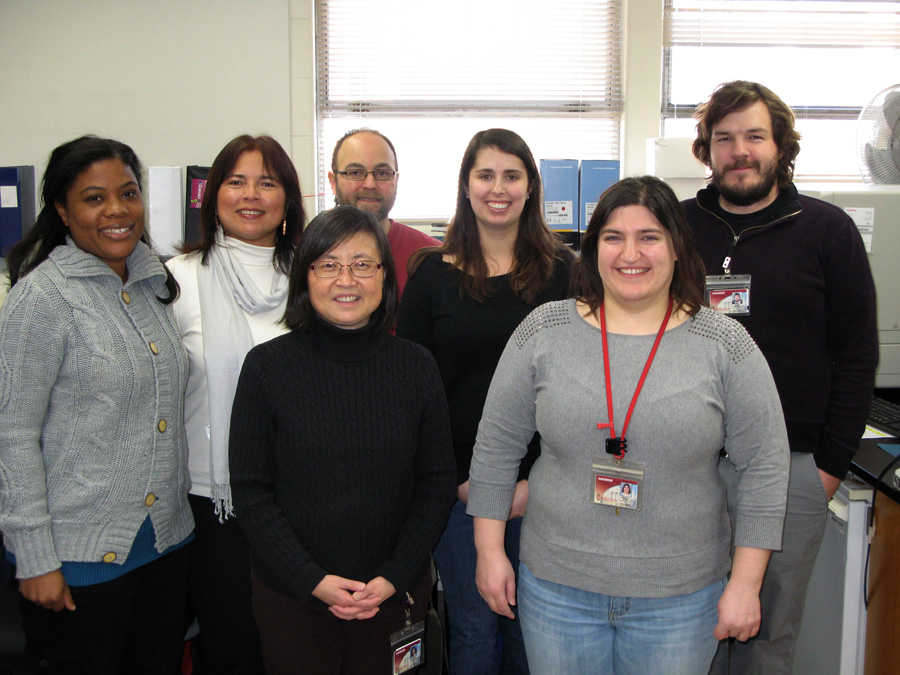Usually in winter it’s Wisconsinites who head south for warmer weather. But in early February, it was two nurses from Puerto Rico’s newborn screening program who headed north to brave the cold and learn from the WSLH newborn screening staff.

WSLH Chemist Marcy Rowe (left) reviews mass spec cutoff data for repeating and reporting testing with Ledith Resto Melendez (top right) and Zulley Peńaloza Medina.
Ledith Resto Melendez and Zulley Peńaloza Medina spent the first week of February learning about our newborn screening testing processes. Puerto Rico’s newborn screening program, which is affiliated with the University Pediatric Hospital in San Juan, received a NewSTEPS grant from the Association of Public Health Laboratories to implement Severe Combined Immunodeficiency (SCID) screening. They started testing for SCID in August 2015.
In 2008, Wisconsin became the first place in the world to routinely screen newborns for SCID. Babies with the disorder are born without a functioning immune system. Our newborn screening lab has served as a training center for many state and some international newborn screening programs that want to implement SCID testing. WSLH Newborn Screening Laboratory Co-Director Dr. Mei Baker has also traveled many miles consulting with labs on SCID testing implementation.
Even though Puerto Rico only began SCID testing months ago, Ledith and Zulley wanted to visit the WSLH NBS lab soon after implementation for quality assurance purposes.
“We want to review our processes with Wisconsin to make sure we are doing things well and see if there are any changes we need to make,” Ledith explained.
And since they were here, they decided to learn all they could about the testing processes for the other 43 disorders screened for in the WSLH NBS lab.
“We have had an opportunity to see every step for every test, from punching blood spots to data entry to testing to results reporting to follow-up,” Ledith said. “We’ve seen every piece of equipment and talked with all the staff.”
“The staff have been very helpful,” Zulley added.
The Puerto Rico newborn screening program screens about 34,000 babies annually for 29 disorders. About 20-25 babies a year will test positive for one of the disorders. There are about 30 staff members who work in the program, which combines testing, short and long-term follow-up activities and genetic counseling.
Ledith and Zulley hope this trip is just a first visit in what will become a long-term collaboration.
“The staff have been great and Mei is a wonderful teacher,” Ledith said. “The people here really love what they’re doing.”

The Wisconsin SCID crew and their guests. (Front row from left) WSLH Newborn Screening Laboratory Co-Director Dr. Mei Baker and WSLH Chemist Marcy Rowe (Back row from left) Zulley Peńaloza Medina and Ledith Resto Melendez — both nurses with the Puerto Rico Newborn Screening Program – and WSLH Chemists Mike Cogley, Deb Statz and Sean Mochal
